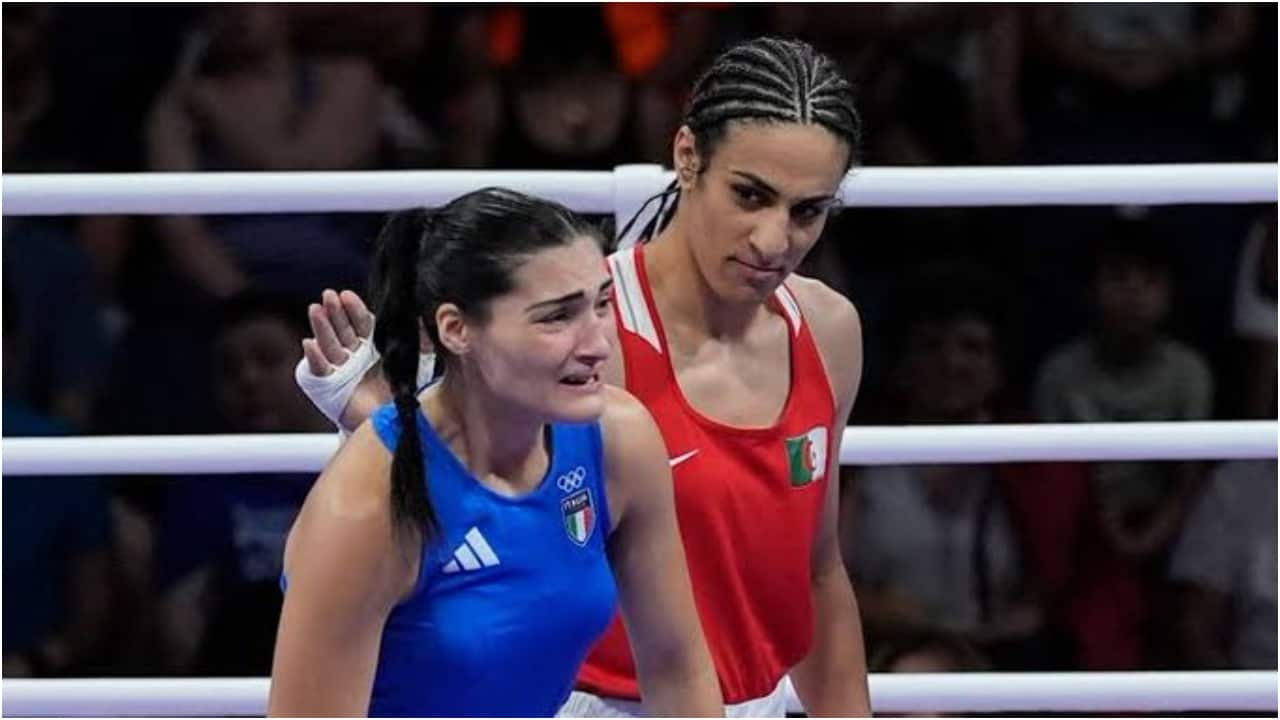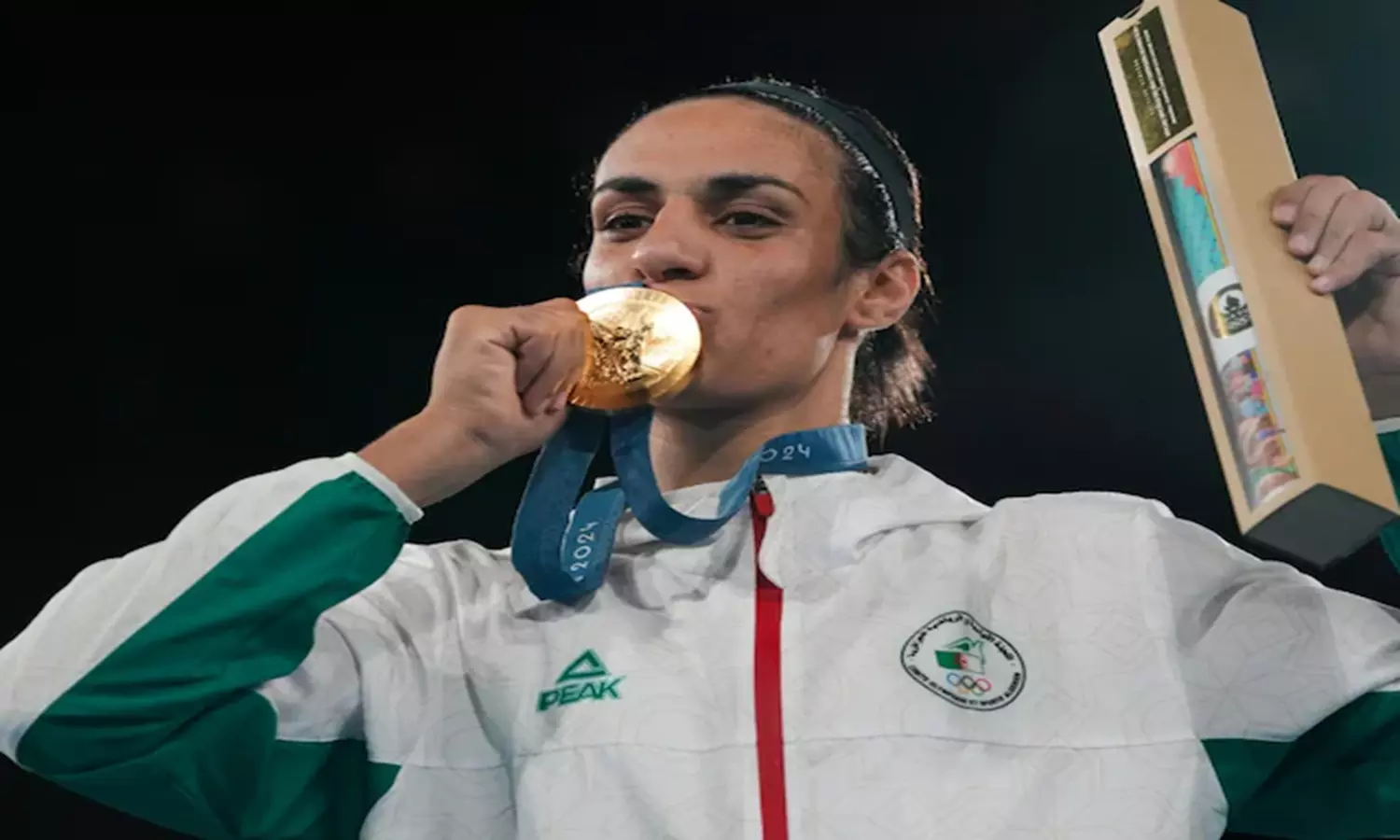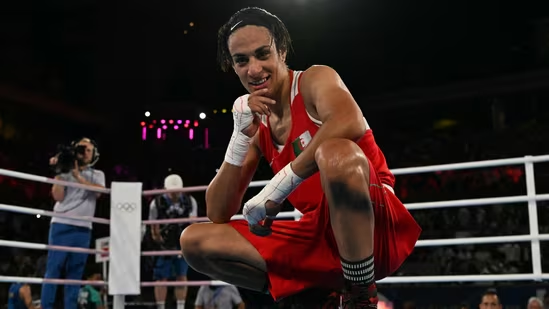Leaked medical records reveal that Imane Khelif, who won gold in women’s boxing at the Paris Olympics, may have a genetic condition raising questions about her eligibility for female competition.
Medical Report Reveals Alleged Biological Characteristics.
Algerian boxer Imane Khelif, celebrated for her gold-medal win in women’s boxing at the Paris Olympics, is facing renewed scrutiny after leaked medical documents raise complex questions about her eligibility in female sports. A report, accessed by French journalist Djaffar Ait Aoudia, suggests that Khelif has characteristics typically associated with male biology. The revelations have sparked heated discussions on the definition of gender in sports, particularly in the context of Khelif’s celebrated victory.
The medical report allegedly reveals that Khelif possesses an XY chromosome pattern, internal testes, and lacks a uterus, which may indicate a rare genetic condition known as 5-alpha reductase deficiency. This condition, while impacting sexual development, often results in ambiguous genitalia and limits secondary male characteristics. Experts from Paris’s Kremlin-Bicêtre Hospital and Mohamed Lamine Debaghine Hospital in Algiers compiled the report in June 2023, detailing findings that could potentially affect Khelif’s eligibility for female sports competitions. Surgical and hormonal adjustments were reportedly recommended, aimed at aligning Khelif’s physical characteristics with her self-identified gender.
The Complexities of Gender and Fair Competition.
The leak comes after a string of controversies surrounding Khelif’s participation in women’s boxing events. In 2023, the International Boxing Association (IBA) controversially disqualified her from the World Championship finals in New Delhi due to questions over her biological sex. While the IBA’s decision was initially met with mixed reactions, the latest revelations have reignited a fierce debate around gender eligibility in sports. Advocates for gender-specific classifications argue that such cases highlight the importance of clearer policies on eligibility for women’s events, especially as modern sports embrace greater inclusivity and diversity.
This fresh scrutiny places a spotlight not only on Khelif’s athletic career but also on the broader issue of defining fair competition in sports. Figures such as media personality Piers Morgan and former U.S. President Donald Trump have commented on Khelif’s case, calling for a review of gender classification policies in athletics. Both supporters and critics of gender inclusion in sports see Khelif’s case as emblematic of the complex intersection between biological sex, gender identity, and sports ethics.

A Personal Defense Amid Rising Criticism.
Khelif, however, has consistently defended her right to compete in female boxing. In response to prior allegations, she stated, “I was born as a woman, I live as a woman, and I am qualified.” Her personal defense, coupled with her determination to compete in the category that aligns with her identity, has gained her support among advocates of gender diversity in sports. However, the medical details disclosed in the leaked report have added a layer of complexity to Khelif’s participation in women’s sports, drawing attention to the need for nuanced guidelines that respect athletes’ identities while ensuring fair competition.
The public’s reaction to Khelif’s statements and her medical records demonstrates the ongoing struggle within the athletic community to establish consensus around eligibility criteria. Many sports organizations, including the International Olympic Committee (IOC), are actively examining policies for athletes with variations in sex development (DSD), seeking a balance that upholds both inclusivity and fairness.
A Turning Point in Gender-Based Sports Policies?
The controversy over Khelif’s eligibility continues to evolve, signaling a pivotal moment for gender-based policies in sports. As more athletes with complex biological profiles enter international competition, organizations are increasingly challenged to create guidelines that respect both individual identity and the integrity of female sports categories. Khelif’s case may thus serve as a precedent, prompting governing bodies to reconsider policies for athletes whose biology does not neatly align with traditional male-female classifications.
While her medical records have become a focal point for public debate, the broader implications of her case extend far beyond her individual career. It underscores the challenges faced by athletic authorities in reconciling biological diversity with the need for clear, consistent eligibility standards. In a world where definitions of gender and identity continue to evolve, Khelif’s story may catalyze more comprehensive discussions, ensuring that future policies reflect the complexities of modern sports and the athletes within them.

Implications for the Future of Gender Classification in Athletics.
Khelif’s participation in the Paris Olympics and subsequent revelations add a profound layer of complexity to the conversation about gender in sports. The leaked report not only raises questions about the extent to which biological differences should determine eligibility but also challenges the ethical framework guiding athletic competitions worldwide. With Khelif at the center of this debate, her case has the potential to shape future policies and redefine the standards by which athletes are categorized and compete.
As public figures, legal experts, and sports authorities continue to weigh in on Khelif’s eligibility, the debate remains ongoing, with implications likely to resonate across the athletic world. For now, Khelif’s achievements in the ring are celebrated by her supporters, even as the discourse around gender and sports eligibility deepens, pressing stakeholders to seek solutions that recognize both human diversity and the foundational principles of fair competition.

